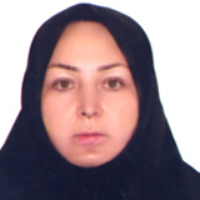Effect of Developmental Care on Preterm Neonates’ Neurodevelopmental Outcomes at 12 Months of Age
Premature birth and subsequent admission to the neonatal intensive care unit (NICU) may impair the neurodevelopment of neonates. The present study aimed to determine the effect of developmental care on neurodevelopmental outcomes of newborns.
This quasi-experimental study was conducted on 105 premature neonates (in three groups of 35 newborns). The control group received conventional care, and the intervention group 1 received developmental care beginning since admission to NICU stay. In addition, the intervention group 2 received developmental care since entering the delivery or operating room. The developmental outcomes were evaluated based on the Ages and Stages Questionnaire (ASQ) and Bayley-III Scales of Infant and Toddler Development. Moreover, magnetic resonance imaging was performed to evaluate the brain myelination at the adjusted age of 12 months.
The obtained findings showed that the frequency rates of communication and language impairment were significantly lower in the intervention group 2, compared to those reported for the control group and intervention group 1, based on the ASQ. The comparison of the scores of the Bayley subscales (i.e., cognition, language, and motor) showed that the frequency of language impairment was significantly higher in the control group, compared to those reported for the intervention group 1 (P=0.012) and intervention group 2 (P=0.024). No significant difference was observed in terms of the neonates’ brain myelination (P>0.05).
The obtained results showed that developmental care, especially when initiated since birth, may improve some aspects of developmental outcomes in preterm newborns.
-
Mental health and its relationship with quality of life in pregnant Iranian women with a history of primary infertility
Farideh Golshani, *, Mojgan Mirghafourvand, Soheila Bani
Journal of North Khorasan University of Medical Sciences, -
Social-Demographic Predictors of Sexual Self-Concept in Women on the Verge of Marriage: A Cross-Sectional Study
Soheila Bani, Maryam Nematzadeh, Mojgan Mirghafourvand, *
Modern Care Journal, Jul 2024


